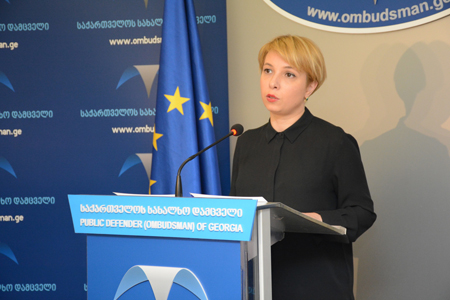Public defender on restriction of metro workers’ right to strike:
“Harmful precedent”

The decision of the Tbilisi City Court, by which the right of the employees of Tbilisi Metro to strike has been restricted, is a harmful and dangerous precedent for labour rights, says Georgia’s public defender Nino Lomjaria.
Metro drivers planned a strike on May 3, 2018, but the strike was postponed for a maximum period of 30 days by a court decision. June 3 was announced as the new date of the strike, although this time, the court restricted the metro drivers’ right to strike during working hours for an indefinite period of time.
First of all, it should be underlined that a strike is a temporary voluntary refusal of a worker to fully or partially fulfill duties under a labour contract. Workers are not obliged to fulfill duties after working hours and therefore, it is illogical to relate the non-fulfillment of duties after working hours to the strike. In addition, the Organic Law on Labour Code of Georgia provides for one-time postponement of strike only for a maximum period of 30 days. The law is a superior legal act and it also contains special norms related to strike. The court has not discussed this issue at all and by its judgment, it made the right to strike a somewhat elusive and unrealised right”, read the announcement of Lomjaria.
Taking into account the above-mentioned reasons the public defender considered that the restriction of the right of metro workers to strike for an indefinite period of time contradicts the law and violates the essence of the right to strike.
 Tweet
Tweet  Share
Share